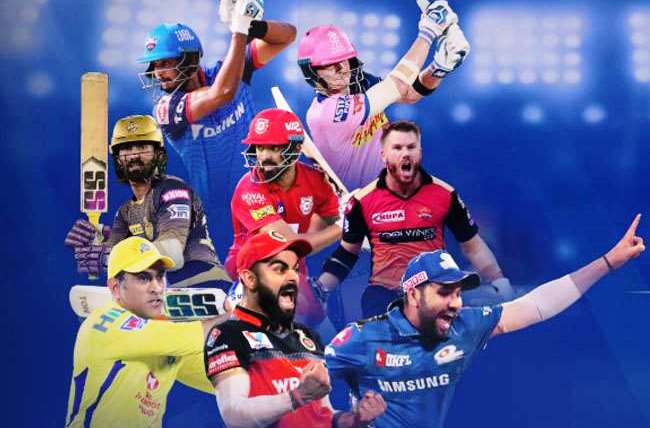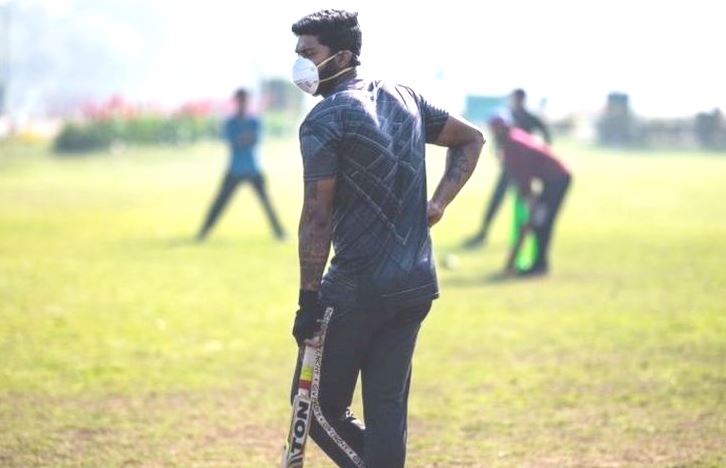Way back, in 2008, when the first Indian Premier League auction took place, noted cricket writer and former Somerset captain Peter Roebuck likened the auction to a huge cattle sale. He was not the only one who thought like that. Even the stiff upper lip Englishmen and cocky Aussies were full of smirk at the inaugural auction.
How times change! Thirteen years on, the same Englishmen and Aussies, traditional rivals on the cricket pitch, clamour to be part of the IPL. They are ready like “cattle” to be picked up for a price and ready to play in killing heat and humidity which the IPL is all about.
Last week, the latest IPL auction held the audience in thrall. A few days after the highs of victory at Chepauk in Chennai where India crushed England by 317 runs in the second Test, the franchise holders were at the same city bidding for players.
The previous IPL season was held in energy-sapping conditions in the UAE, with Dubai, Abu Dhabi and Sharjah being the venues. Playing in the Bio Bubble due to Covid-19 and being restricted so tightly did not deter the cricketers from playing top-flight club cricket.
In less than four months after the last IPL, it is back to the 2021 auction where Rs 145.30 crores were spent on 57 players. Twenty two of these were from abroad, which makes one wonder what depression and recession is all about in the Indian economy.
To be sure, the IPL has shown it is recession proof, year after year. This was a big auction and the way the teams went about spending moolah showed they were ready to loosen the purse strings on golden oldies. Young Turks also commanded a price.
It was a jaw-dropping moment when Chris Morrison, from South Africa, 33, was grabbed by Rajasthan Royals for Rs 16.25 crores. Behind him in the Big IPL Bazaar was Kyle Jamieson of New Zealand who was picked up by Royal Challengers Bangalore for Rs 15 crores.
For those who felt the IPL was only about picking players who are in good form or have a proven track record, Aussie Glen Maxwell, a flop show in the last edition, commanded a price of Rs 14.25 crores and went to RCB. The Virat Kohli led side is yet to win an IPL title.
ALSO READ: Covid-19 Maimed Sports Fraternity
Kings XI Punjab, now rechristened as Punjab Kings, bought Jhye Richardson, age 24, at Rs 14 crores, which showed the teams which have not done as well as Mumbai Indians or Chennai Super Kings still play huge stakes in the IPL.
Over the years, purists in cricket, now a dwindling breed, have started accepting the IPL. They will swear the slam-bang, whiz-thud brand of cricket is not to their liking but none minds the huge sixes, players fielding like men ready to give up their lives to catch the ball and bowlers ready for delivering with laser-precision.
At this stage, with Corona virus cases again rising in a few states in India, one is not sure how the BCCI and the IPL head honchos will hold the event this summer. To think of a home-and-away playing format in the Bio Bubble will be impossible. However, when it comes to planning for the IPL, it has always been meticulous and maybe just a few cities are used. Mumbai has four cricket stadia but the Corona cases may be an impeding factor, as of now.
The good thing about the IPL is it has provided a platform for many careers to be built as has been the case with players like T Natarajan, Washington Sundar, and K Gowtham to name a few. Of course, someone like Mohd Azharuddin is complaining Sunrisers Hyderabad hardly has any player from the city.
He has made a pertinent point but the IPL is beyond loyalty for a city or own state. It is a cut-throat and high stakes business model where finding the best players to be part of the franchise matters. In a way, the IPL is like football’s EPL model and other club franchises in Europe. What matters to the owners is having the best players.
Look at Chennai Super Kings. They are still going with MS Dhoni, age 39 and veteran Suresh Raina even as they have picked a few good players like Gowtham (Rs 9.25 crores), Moeen Ali (Rs 7 crores) and durable Test batsman Cheteshwar Pujara at Rs 50 lakhs. Social media is divided over the price for Pujara. But for those who know his real value in the Test format, he is priceless and he is quite happy he is in the IPL mix after a long hiatus.
ALSO READ: Test Cricket Gets Its Swagger Back
Punjab Kings had a purse of Rs 53.2 crores at their disposal and spent Rs 34.4 crores. Royal Challengers Bangalore could spend a maximum of Rs 35.4 crores and splurged Rs 35.05 crores. Kolkata Knight Riders had a low budget of Rs 10.75 crores at their disposal and spent Rs 7.55 crores.
Rajasthan Royals had Rs 37.85 crores at their disposal and spent Rs 24.2 crores. Delhi Capitals were not able to spend much as they had Rs 13.4 crores in their kitty of which they spent Rs 11.25 crores. Mumbai Indians had Rs 15.34 crores to buy and used Rs 11.7 crores. And Sunrisers Hyderabad were conservative when they spent Rs 3.8 crores of the Rs 10.75 crores available.
The reason for varying sums at the disposal of various franchises is how much they have spent in the past as there is an overall budget cap. For some teams, fancy names may matter but overall the owners have become smarter and pick players who can deliver in the high pressure IPL.
The return of Vivo as IPL sponsor is very interesting. Last time when the IPL was held in 2020, emotions were high as “Chinese virus” had led to blacklisting and boycott of anything to do with our neighbouring country. Today, one hears of big incidents between India and China on the border but people have forgotten about the Chinese virus!
For the BCCI, having IPL is a win-win situation as they rake in big bucks, officials details of which have not been made public. That the IPL is business plus glamour was never in doubt. Maybe, we can see cheerleaders again. Maybe, we can see fans inside the arena again.
All in all, the IPL definitely lifts the gloom. It is an ecosystem in itself which supports many. Like it or lump it, the IPL has shown, even in difficult times, it remains a hot brand. So, why should cricketers and those in the business of IPL be left behind?

